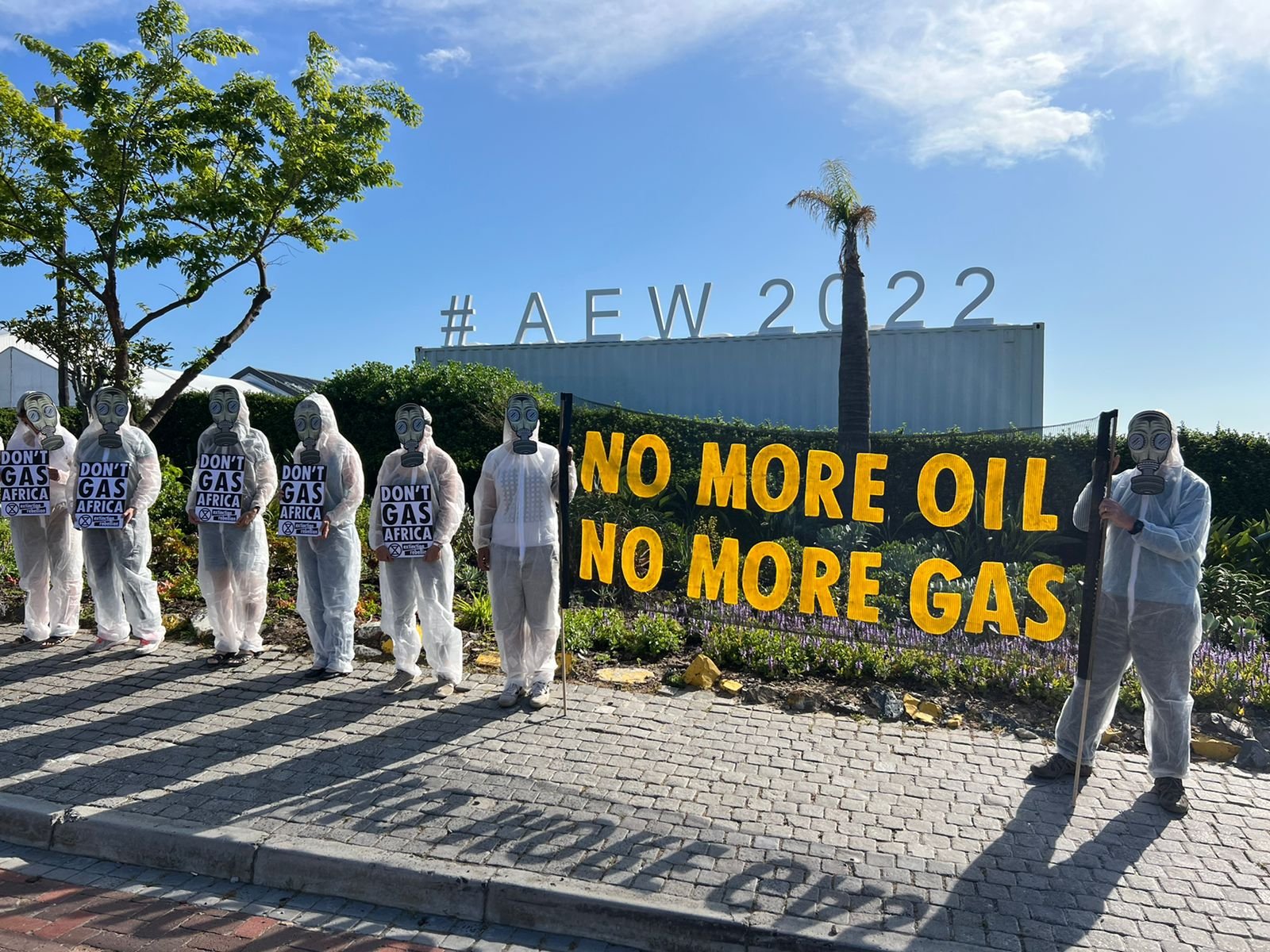
Africa Energy Week (AEW) is being held in Cape Town between 18-21 October will bring together industry leaders and Energy, Transport, Petroleum and Mining ministers to discuss the opportunities and challenges ahead for the continent’s energy landscape, while sharing and preparing the message that the African continent will present to the world in the upcoming COP27 conference.
This sounds great in theory, and should be a chance for leaders to come together to help build a sustainable and renewable energy future for Africa. Instead, the Africa Energy Week program is a systematic plan by the fossil fuel industry for the massive scaling up of oil and gas in Africa. It’s a declaration of war on Africa’s sustainable future and the global climate. It is key to note that some African governments continue to find ways to push for fossil gas as a foundation for Africa’s energy future, and we cannot allow that to happen given the climate emergency along with history of extractivism that has ushered Africa into a state of uncertainty.
This week’s AEW conference comes in the context of a dangerous proposal by a technical committee of the African Union to adopt a new “African Common Position on Energy Access and Transition”. This again sounds great in title but, in substance, presents a position that makes no significant proposal to expand renewable energy or decentralized energy access, but instead represents the interests of the fossil fuel industry by explicitly stating gas, oil and coal ”will continue to play a crucial role” in the continent’s energy mix.
The current draft of the proposed common position:
📈 Calls for expanding coal, oil & gas despite the threat they pose to development, health, biodiversity and our climate
🔥 Frames gas as 'clean' and ‘green’ energy, similar to recent pushes in the EU. This ignores the proven harmful impacts of fossil gas on our climate, health and air quality. #NotMyTaxonomy
🤔 Has no major proposal for expanding renewables or decentralized energy to the 600 million people in Africa that currently lack energy access
❌ The African Union technical paper fails to cite analysis or evidence for many of these key recommendations.
The plan is clear here - key African ministers from a handful of fossil fuel producing countries, and fossil fuel industry executives, are moving to ambush COP27 and ensure that Africa’s future is fossil fuelled, instead of realizing our immense potential for clean, affordable, renewable energy.
The meeting’s agenda is a declaration of war on Africa’s sustainable future and the global climate, and we can’t let the fossil fuel industry consolidate a pro-fossil fuel position for the continent.
Join us from October 18th to 21st, at 9am everyday, outside the Africa Energy Week venue (Water Front, Cape Town) to ensure the Africa Energy Week does not lock our continent and its people into a fossil fuel future.
